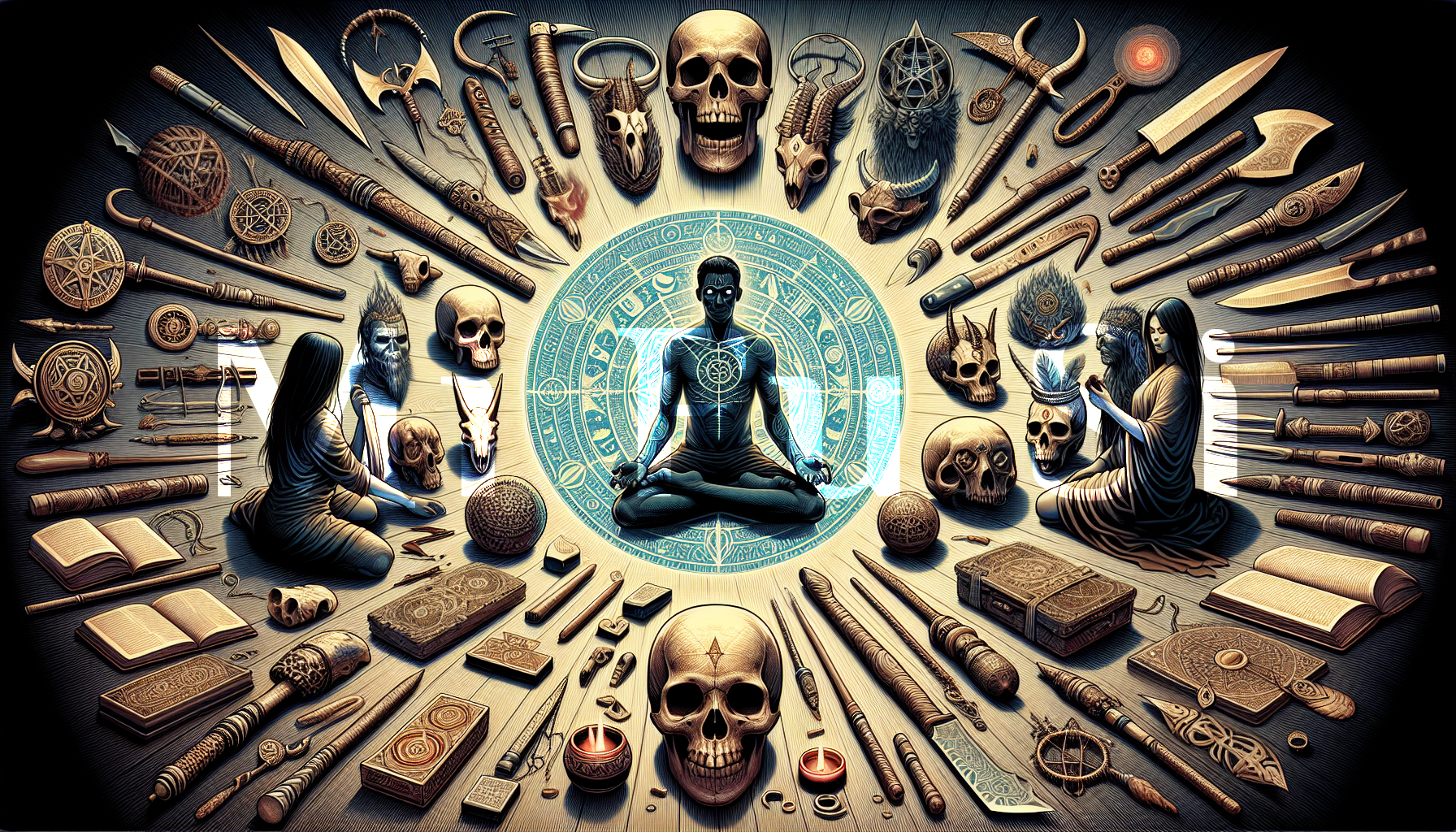Wormwood in magical practice
(Ngãi là gì? sent by như-ý- edited by rain9811 and xiaobaiyun)
Many captivating tales circulate about the extraordinary powers attributed to the wormwood plant. However, these stories may lead those unfamiliar with occult principles to mistakenly believe that the plant itself possesses inherent mystique and sanctity, which is not the case.
Many shamans typically employ Yantra and mantra in their rituals. However, some seek to heighten the mystique and allure of occult practices to the general populace by incorporating uncommon or rare plants. These plants, collectively referred to as Ngai (wormwood), may possess poisonous, carnivorous, or medicinal properties, capable of causing or curing illnesses. Shamans then conduct rituals to imbue Ngai with sacredness and magical potency, utilizing corresponding Yantra and mantra for empowerment.
In Thailand, Laos, and Cambodia, the term Ngai encompasses any Yantra drawn on paper accompanied by its specific Mantra, without necessarily implying the involvement of a sacred plant. This underscores the consistent and indispensable role of Yantra and Mantra in occult practices. Sorcerers rely on these elements to bestow sanctity upon any plant or object, highlighting their fundamental significance in such rituals.
Hence, objects like Ngai, sacred skulls, or magical knives do not inherently possess magical power; rather, they acquire it through the shaman’s invocation. Through prayer, shamans call upon the spirits of the underworld, who then perform magic on their behalf. Without the assistance of these spirits, rituals aimed at empowering Ngai, Mantra, Yantra, or any other object remain ordinary and devoid of power.
Indeed, it’s important to recognize that soldiers and gods of the underworld aren’t at the beck and call of the shaman. Above them are celestial officers, akin to a system of heavenly police, who regulate the underworld gods and their armies by the laws of heaven. These celestial beings maintain order and authority over the spiritual realms, ensuring that divine governance is upheld.
Shamans are considered officers of the intangible realm, bound by its laws, much like lawyers advocating for their clients in legal proceedings. Similar to how lawyers may seek punishment or argue to mitigate penalties, shamans navigate the spiritual realm with adherence to its laws, advocating for their clients’ spiritual well-being and seeking resolution within the framework of divine justice.
In principle, those afflicted by spells, suffering under the influence of tormented spirits for punishment or reform, typically bear karmic debt, karmic affinity, or have violated celestial law. The adage “gods and ghosts keep away from the virtuous” suggests that innocent individuals are generally immune to such spells. However, should an innocent person become the target of a spell, a shaman intervenes to break it on their behalf. This parallels how law enforcement does not trouble law-abiding citizens, but if such trouble arises, there are higher authorities to whom citizens can report, ensuring that those abusing power are duly punished.
In the occult practice of charms and spells, shamans employ various tools such as Ngai, skulls, knives, and more. It’s essential to recognize that these tools are inanimate objects and not inherently sacred. Additionally, shamans who utilize Ngai are not inherently superior to those who use traditional Yantra.
Shamans can empower Yantra, Mantra, Ngai, or any chosen object, but their magical effectiveness is ultimately determined by the judgment of the divinities. This assessment follows the standards set by the divinities, rather than the mere wishes of the shaman.
Shamans who adhere to Celestial Laws, acting in accordance with righteousness for the welfare of others, may find no need to resort to Ngai, Mantra, Yantra, or any other tools. Instead, they can directly pray to the Divinities, and their requests will be granted.
Understanding the laws governing the use and efficacy of Yantra, Mantra, and Ngai alleviates the fear of falling victim to spells or enchantments. Similarly, we can abandon the misconception of associating the occult practices of Mantra, Yantra, Ngai, soldiers of Hades, ghosts, and wandering souls with the wrong path or devilry.
(revised 3/1/2024)
Related Post
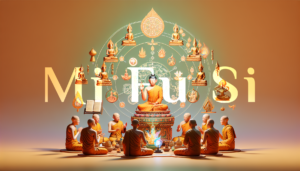
The Singular Source of Religions
The Singular Source of Religions (Tất cả tôn giáo đều cùng một nguồn gốc by DongVan on Sat Jun 26,...
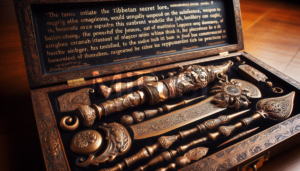
The Enchanted Dagger
The Enchanted Dagger BÌNH LUẬN: Cây đao phép (D.Neel); by XuanThu on Mon Jan 19, 2009 2:16 pm. (Excerpt from...
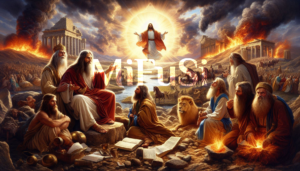
Misguided Doomsday Prophecies
Misguided Doomsday Prophecies Thiên Cơ Bất Khả Lậu... Lậu Bất Khả Tri!; by hoatam on Thu Oct 22, 2009 3:46...
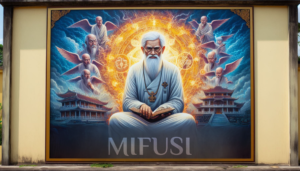
Story 11 – A mysterious illness
Story 11 - A mysterious illness Câu chuyện số 11 - Bệnh Vô Hình by ThầyGià on 12 November 2008,...
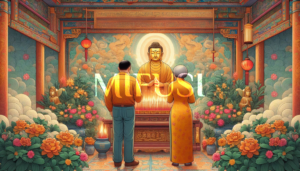
My mom’s mystical experiences
My mom's mystical experiences CHUYỆN HUYỀN BÍ CỦA MẸ CON by Namlinhchi - translated by Bluesky - edited by Horangi....
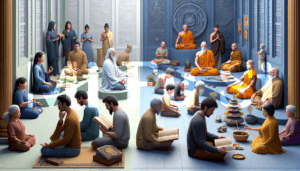
Spiritual pilgrims: Obstacles ahead
Spiritual pilgrims: Obstacles ahead (CHƯỚNG NGẠI CỦA NGƯỜI TU LÂU by chinhphong on Thu Oct 07, 2010 1:35 pm, translated...
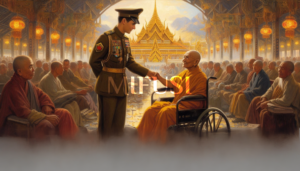
Story 14 – Invoking Uncle Ho
Story 14 - Invoking Uncle Ho Câu chuyện số 14 - Niệm danh cụ Hồ by ThầyGià on 12 November...
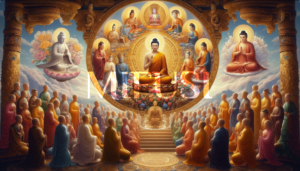
Atheists Trumps Fanatics
Atheists Trumps Fanatics Thà là người vô thần... by Dianichi on Wed Nov 19, 2008 3:04 pm Sure, here's a...
